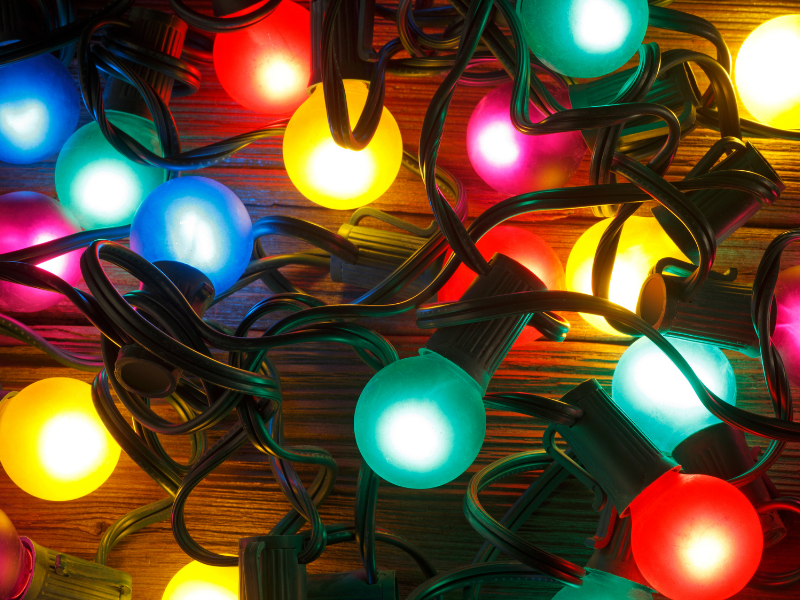The festive season is upon us, and we’d like to thank you all for your support this year and to send you our best wishes for the New Year.
As our Christmas gift to you, we asked our building energy expert Justin Searle for some simple tips that might help you to reduce your energy consumption, bills and environmental impact this festive season.
1. Give the gift of rechargeable batteries with the kids’ toys
Whether rechargeable or disposable batteries are better for the environment depends on how they are used. They use different chemicals and processes, and consumer behaviour does impact the balance. But the conclusion appears to be that the more charging cycles there are, the better rechargeable batteries perform environmentally.
That means that rechargeables win for high-use devices like electronic toys or games that need batteries changed regularly. However, in things like smoke alarms or TV remote controls where batteries last for many months or even years, single-use batteries are a better choice.
2. Turn your heating down if you’re going away
If you are going away for a few days over Christmas, turn the hot water off and your heating down a few degrees – but be sure to enable a minimum temp in case the weather gets extremely cold while you’re away. Turn off non-essential electrical items too.
Gift idea for the energy saver: Many smart thermostats can manage your heating automatically. Some are even based on geofencing or remote operation, which means you don’t have to return to a cold house because they trigger as you re-enter the geo-fenced area or can be turned on remotely.
3. Don’t overfill your fridge
This may be easier said than done for many, as Christmas can be a time of indulgence!
An over-filled fridge can be inefficient as air is needed to circulate. A very over-filled fridge can result in the door seals not engaging completely and then the fridge has to work really hard to keep things cold, using lots more energy.
Likewise with a freezer: it’s a good idea to defrost it before stocking up for Christmas because that’ll create more space for air to circulate and helps the door seals to work their best.
When the fridge is emptier, you can reduce energy consumption by putting some bottles of tap water in it; they add thermal mass (items that absorb and store heat), which helps to maintain a constant temperature and reduces the cycling frequency of the fridge. Avoid putting hot food in the fridge – allow it to cool first – and avoid leaving fridge and freezer doors open for longer than necessary.
4. Save energy on your Christmas dinner
Keep an eye on the indicator light on your oven to check when it’s got to temperature, rather than putting it on early and potentially forgetting about it! Preheating may not even be needed for foods that cook for several hours.
Use only enough water to cover your veg in the pot, rather than over-filling it, and don’t forget to put the lid on! With the lid on heat is kept in the pot and you can turn the hob down a bit.
Did you know? Cooking with lids not only saves energy but reduces cooking time too, so you won’t have to wait so long for your dinner!
5. Recycle food waste
It’s better not to waste food at all (not to mention the energy used to grow, make or transport it) but if you have any leftovers put them into the appropriate recycling or composting container for collection.
Did you know? All councils in Wales offer food waste collections now and 12 teabags is enough to fully charge a tablet.
6. Save energy on your Christmas lights
Our low carbon buildings all use LED lights and so should your Christmas tree – they consume less power and should last for many years. Put your lights on a timer socket so they aren’t left on overnight, even when you forget to turn them off.
Gift idea for the energy saver: you can get timers that use a simple clock, or a super smart plug that uses variables like sunrise and sunset and shows you how much energy your Christmas lights are using.
